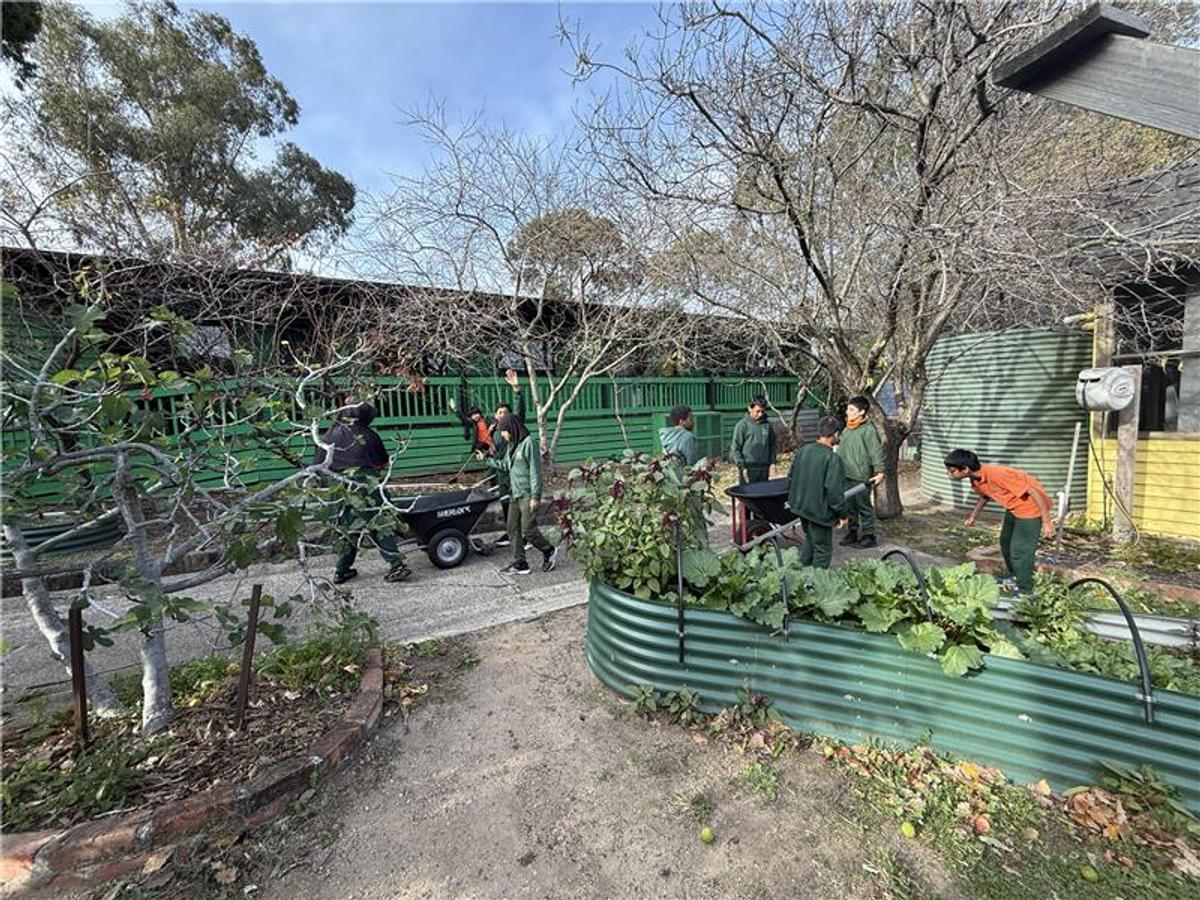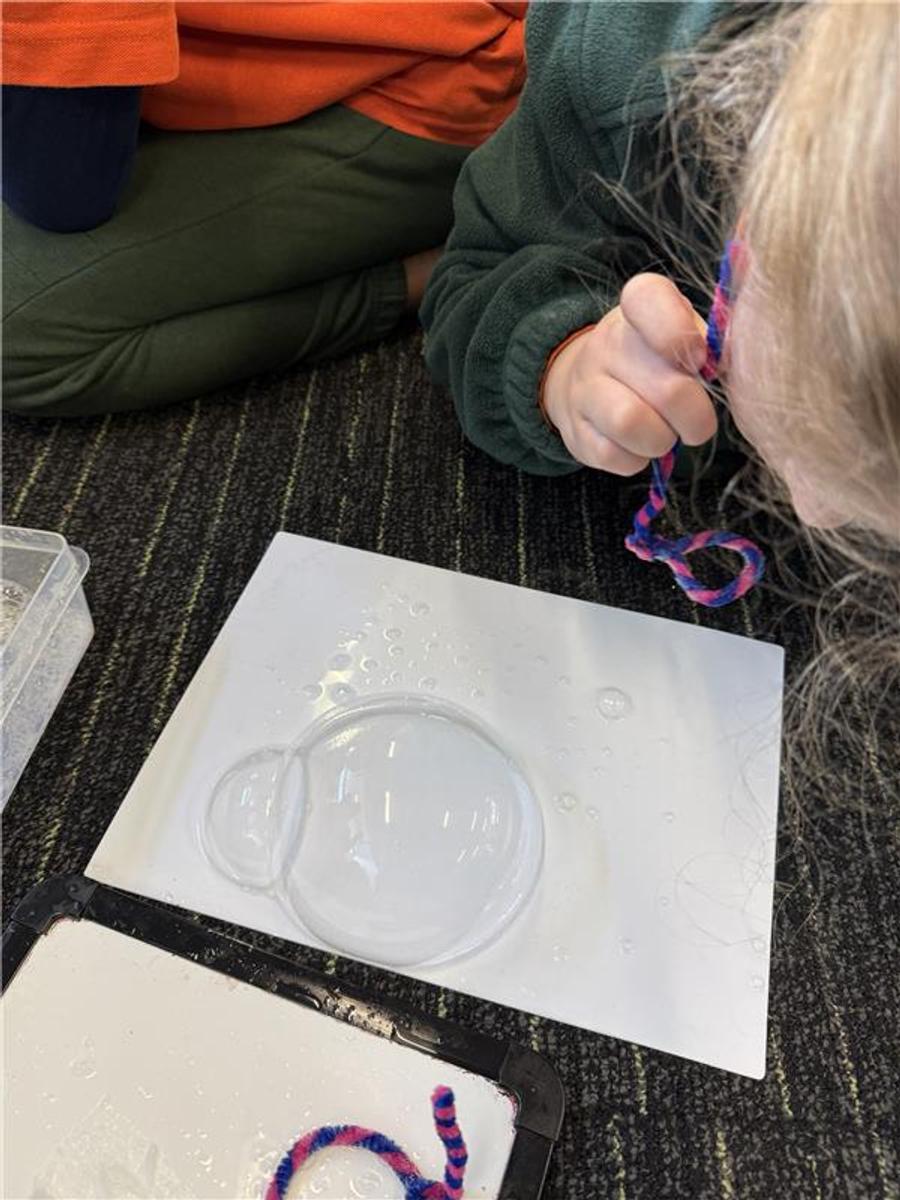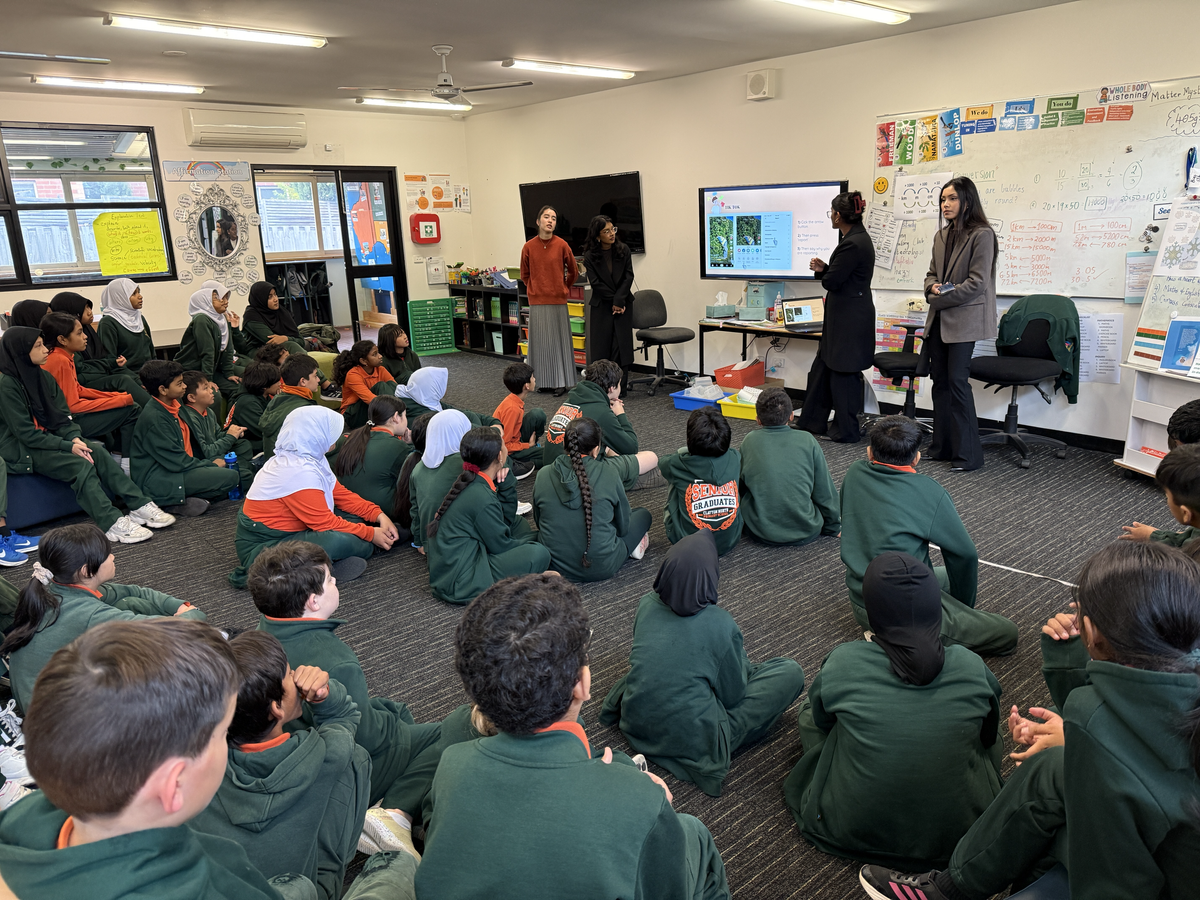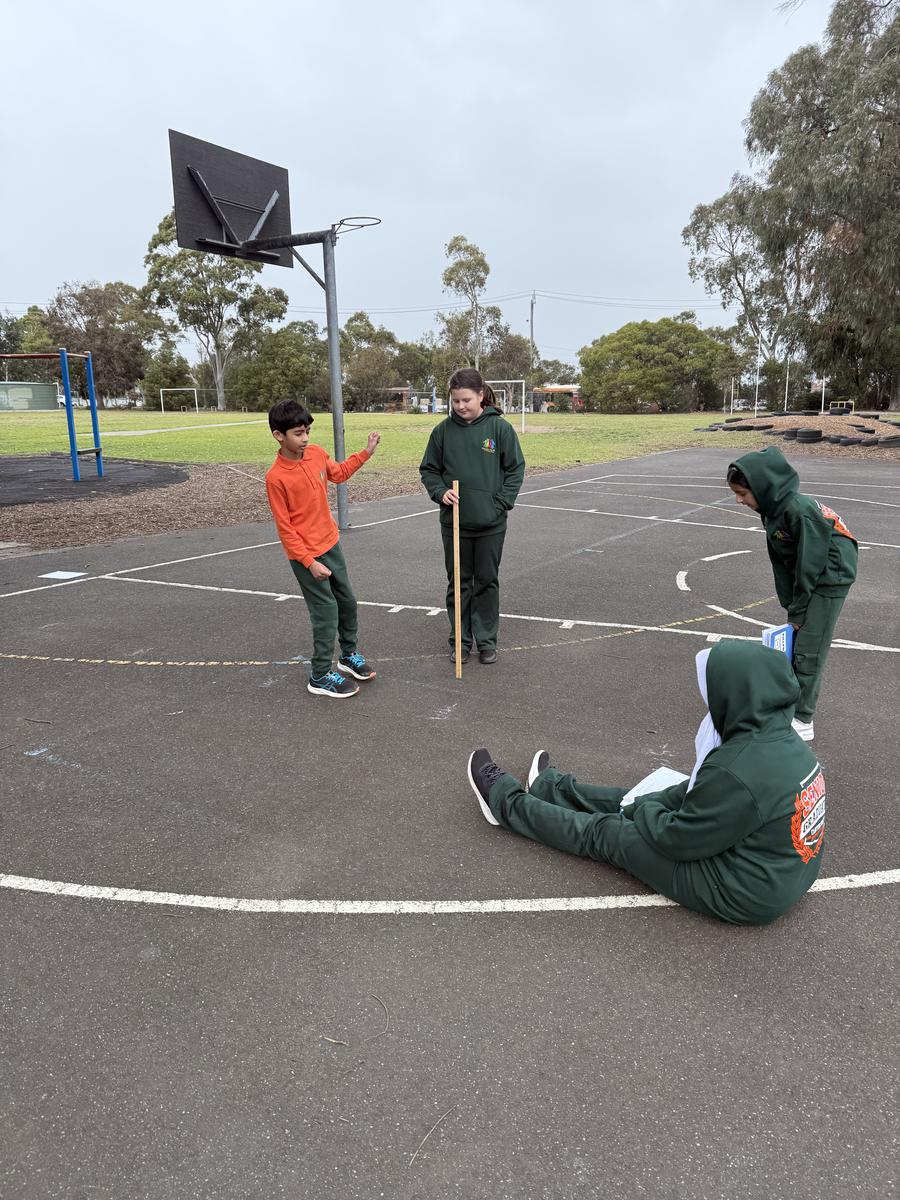Year 5/6 News
Radhika and Precious

Year 5/6 News
Radhika and Precious
Our school has a beautiful garden with healthy plants and happy chickens. The plants include vegetables, fruits, and flowers. Some of the vegetables we grow are chilies, eggplants, and tomatoes. We also have a special fruit from Indonesia. The name is pohon pisang or banana tree. We water the plants regularly to keep them alive and healthy. Beside the plants, we also have five happy chickens. As one of the environment captains, I take responsibility for taking care of the chickens everyday. My friends and I feed them and provide them with enough water. We check them everyday and collect their eggs.
We love our role as environmental captains because it teaches us responsibility, teamwork, and love for nature. To sum up, it feels great to see how our hard work helps plants grow and chickens live happily. Taking care of the garden is something we are proud of because we ensure our environment is sustainable. We hope that our positive actions will inspire other students to do the same and to care for our garden
- Mecca, 5/6B


Chickens in schools help reduce waste by eating food scraps, providing fresh eggs, which we then sell. We also make sure they have sufficient food and water! Plants give us oxygen, food, and make our school beautiful. Taking care of them helps nature stay strong and healthy.
- Ruby, 5/6B


In Writing, we have done experiments on how bubbles are made, and we wrote an explanation text which contains exactly why and how bubbles are created. An observation I made was that wet and soapy areas help the bubbles remain strong, which strengthens the layer of water and soap to prevent popping. When we added honey, I saw that the bubbles were heavier and fell to the ground quicker, but they were more durable, almost doubling the time it took for the bubble to pop.
- Gio, 5/6B
On Friday the 24th of May, some people from Monash University came to the 5/6 area to talk about cyberbullying. First, they taught us cyberbullying is like bullying but online and can still give you the same effect. Next, we were put into our house groups (Freeman, Wood, Dunlop and Namatjira) and were given scenarios about cyberbullying. We were to find the following: bystander, bully, and victim. Close to the end of the incursion, they also taught us how to report cyberbullying on social media platforms. In the end everyone had fun learning about cyberbullying.
- Keenan, 5/6A




In maths we learned how to multiply large numbers and different kinds of methods. We also learned to multiply and divide by ten, hundred and a thousand, also adding decimals. We then tried to convert kilometers, meters, centimeters and millimeters with each other. We found multiplying was easy once you learned how to do it. We had competitions with each other; we would ask each other questions and whoever had the most correct answer would win. We found one common method of multiplying; it was the standard algorithm. Most of us found it easy and fast to do. Then our teachers would ask us questions, and we would answer them.
After we mastered our multiplication, we tried to multiply numbers like 10, 100, and 1000. We found a much easier method when there was a zero at the end of a number. We multiply the other number that isn’t a zero, then after we do that, we add a zero in the ones column. We also found another method when you have to divide with a 10, 100 or a thousand. We just have to count how many zeros there are and move the decimal point near your ones column and then that will be your answer. Moving the decimal point actually moves the place values. Next, we levelled up and tried to convert kilometers to meters and centimeters to millimeters. We also tried it backwards. It was hard at first, but it became easier. We had to do the same method that we used for multiplying fractions ending with zeros and that has 1 in them. We use multiplication when we are going forward and when it is backwards we use division. We had fun learning how to multiply. We challenged ourselves to multiply big numbers. We also mastered how to multiply when there is a zero at the end of a number. Now we know that we can use multiplication on converting meters as well. Multiplication is easy.
- Ethan, 5/6A